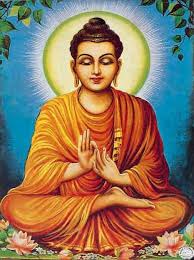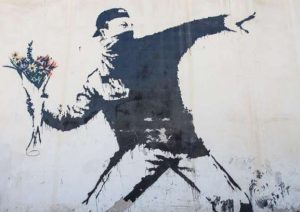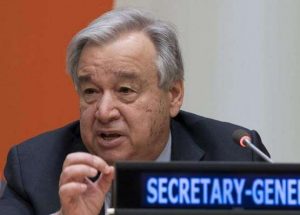
Participants gathered at the University of Notre Dame in Indiana on 12–14 December to take part in the third and final workshop in a series of discussions of religion in the public sphere. The workshops, hosted by the Ansari Institute for Global Engagement with Religion, featured “trialogues” or dialogues between three people, with faith leaders, scholars, and journalists taking part.
The workshops were hosted and coordinated by Prof. Mahan Mirza, who leads the Ansari Institute and is a professor of Islam and science at the University of Notre Dame, and Prof. Alexander Hsu, assistant teaching professor for the Ansari Institute. The series began with a virtual panel in June 2021, with the inaugural workshop following in December 2021. The second workshop was held in August 2022, and the third was held this month.
The purpose of the series was to bring these three, at times distant, professions together, and for the participants to share their experiences and perspectives in order to foster mutual understanding and better communication with the public about religion.
Each of the three workshops focused on a theme. The inaugural workshop was themed “Hindsight is 2020” and focused on religion in the news in 2020. After delays due to COVID-19, the hosts and organizers decided to create an early virtual panel to begin the conversation.
The in-person workshop that followed drew together 16 participants to discuss elements of their work in greater depth over a course of three days. Each day focused on a major event in 2020: religious responses to the coronavirus, Black Lives Matter awareness and protests, and the 2020 US elections.
The second workshop was held on the theme of “Never Forget,” looking back at the 11 September attacks in the US and revelations of clerical sexual abuse, and the ensuing religious conversation and coverage. This time 17 participants gathered from around the world representing Catholicism, Protestant groups, Islam, and more.
The third workshop was on the theme of “Religious Futures.” This time, 18 attendees gathered at Notre Dame, plus one joining by Zoom, to tackle the heavy topic of the future of religion. This gathering featured two scholars of Buddhism: Dr. Ann Gleig, associate professor of religious studies at the University of Central Florida, and Dr. Natalie M. Avalos, assistant professor in the Ethnic Studies Department at the University of Colorado, Boulder, as well as Buddhist Global’s Dr. Justin Whitaker representing Buddhist journalism.
Avalos, also a scholar of indigenous and Native American religious traditions, was paired with Shannon Rivers, a faith leader with the Akimel O’otham (River People) Nation in Arizona and Tyler M. Tully, a doctoral candidate in theology at the University of Oxford.
Also at the workshop were representatives of Catholicism, Islam, Judaism, and Protestant Christianity.
Joining Dr. Whitaker and Dr. Gleig was Nikhil Mandalaparthy, deputy executive director of Hindus for Human Rights, forming a session dedicated to the two largest Dharmic religions.
Dr. Gleig spoke about her work as a scholar of American Buddhism and, in particular, her and Dr. Amy Langenberg’s work on sexual abuse in American Buddhist communities. Mandalaparthy spoke about his work to counter growing Hindu nationalism, particularly in the US, by presenting an alternative, progressive voice for Hindus.

Dr. Whitaker’s talk discussed his 2019 feature article: “Buddhist Journalism in an Age of Global Distrust,”* which itself refers to coverage Buddhistdoor Global’s Raymond Lam of a similar gathering, this one focusing exclusively on Asian Buddhism: “Asian Buddhist Media Conclave Seeks Dharma-inspired Paradigms for Buddhist and Secular Journalism.”**
Workshop attendees demonstrated an acute awareness of many of the benefits of insightful journalism, scholarship, and faith leadership. Most discussions, however, focused on the collective difficulties and shortcomings of these professions. As several participants noted, these opportunities to step out of our daily work in order to be self-reflective are rare and precious.
Sarah Ventre, an audio journalist who has been nominated for a Peabody Award for her podcast on a fundamentalist Mormon community, introduced the concept of the “crossfade,” drawing from the work of Prof. Josh Kun, which showed how aspects of one piece of music can flow into another piece of music in a temporary, liminal space to create something new and extraordinary. Through her talk and our conversations afterward, it became clear that the workshop brought our spiritual or religious aspirations into a crossfade with our ordinary professional lives in an incredibly impactful way.
Rather than trying to predict or forecast religious futures, as might have been sought of us, we instead came away invigorated in our roles as co-creators of those futures.
Summaries and video from the first two workshops are available at the Ansari Institute’s webpage. A summary of the third workshop and video from the closing public conversation are forthcoming. Also planned is a further gathering featuring participants from all three workshops, which will take place some time in the summer of 2023.
* Buddhist Journalism in an Age of Global Distrust (BDG)
** Asian Buddhist Media Conclave Seeks Dharma-inspired Paradigms for Buddhist and Secular Journalism (BDG)
See more
Faith in the Story (Ansari Institute)
Related news from BDG
Young Buddhist Association of Indonesia Hosts National Workshop on Religious Moderation
Engaged Buddhism: 20th Biennial INEB Conference Concludes in South Korea with a Commitment to Action, Peace, and Change
International Workshop Series to Discuss Buddhism and Comparative Constitutional Law
Sixth International Buddhist Conclave Begins in New Delhi
Symposium of Asian Scholars, Media Experts Seeks Mindful Model for Journalism












